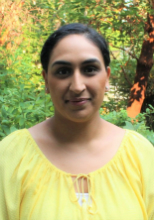
By Satinder Virdi
Whenever I am asked what I’m studying at university, my response is always “I’m doing my Masters in Education.” This isn’t technically true as I’m actually completing a Master of Education known as the M.Ed. degree program. Apart from their titles, significant differences exist between a Master of Arts (M.A.) and an M.Ed. degree.
The M.A. in Education is a research degree primarily for students who have an interest in conducting research in the field of education. It is well suited for those who intend to pursue doctorate level study. In order to earn an M.A., students must complete and defend a thesis.
In comparison, the M.Ed. can be classed as a professional degree, which is ideal for licensed educators looking to expand their career options. This degree often focuses on more practical, field-based research and experiences, which critically evaluate educational practices. The M.Ed. does not require a thesis; however, it does contain research elements on par with the standard required by an M.A. This requirement can take the form of a capstone project, development of a portfolio, and/or comprehensive examinations.
At UVic, the final requirement of the M.Ed. program is a comprehensive examination. The penultimate task is the completion of a research project, which cannot include human subjects. The project is typically 50-70 pages and can take a number of different forms. While some projects are more theoretical, the majority aim to serve a practical purpose. Projects can range from policy development to the implementation of arts-based workshops.
The focus of my project is the mental well-being of schoolchildren. I am carrying out research that will be used by the Ministry of Education to establish guidelines for school leaders on how best to support the mental wellness of children in their schools. Mental well-being has become a recurring theme in my work over the last 10 years. During my time as a classroom teacher, I frequently came across students feeling stressed due to the fear of failure. In addition, a course I completed earlier this year sparked my interest in the mental well-being of schoolchildren further. This was a project that was completed for the Ministry of Children and Family Development. It focused on the provision of sexual health education in the schools of British Columbia. According to my research, one of the key elements associated with young people making sensible and informed sexual decisions was directly related to their mental health. This led me to investigate the Ministry of Education’s research priorities. I was unsurprised to learn that mental well-being in schools is a big agenda item for the Ministry at present. This motivated me to involve myself with the project in an attempt to support current research and investigate developments in this area.
My interest and passion for the subject led me straight to the UVic Library. I spent hours searching through various databases to find everything I could that has recently been written on mental well-being. At this point, I had no research questions or framework to work with, and I knew my approach wasn’t ideal. I downloaded paper after paper and had highlighting everywhere! When I attended my research methods class, my project supervisor taught me the importance of being specific. It was exactly what I needed to bring order to the chaos I had unintentionally created. Now that I knew exactly what I was searching for, it also lent a hand in beginning the writing process. There is no set format for writing your project. However, it is a good idea to use a basic outline regardless of the approach you use. Supervisors seem to like the three-part structure and it is what I am using too.
Following an abstract and table of contents, the first part of the write-up is an introductory chapter that explains the overall purpose and objectives of your project. It provides the general context that helps readers understand the problem being tackled and the significance of your research. Chapter two is where you outline the theoretical foundations and framework of your study. References to literature can help demonstrate your understanding of similar studies and the findings of scholars in your area of interest. The final chapter, which is what I am currently working on, is where you showcase your findings. Depending on the type of project you complete, this can take the form of a report, a workshop, or a piece of artwork. As part of the discussion and conclusions section, you can share ideas for further research or make specific recommendations.
At times writing my project has been challenging. Referring back to my original handwritten draft outline is what has always helped me stay on track. In my experience so far, being truly passionate about the subject alone hasn’t proven to be enough. What we learn and what we may know mean very little unless we can translate them into written words. Feedback from my supervisor states that my writing is persuasive and effective, which reassures me that I’m heading in the right direction. Focusing on one aspect at a time and writing in short bursts is working out well for me. As writers, our approaches and styles may vary, but I honestly believe that good planning can help lead the way for us all.
About Satty
Satinder (Satty) Virdi is a UK qualified secondary school teacher with 10 years of classroom experience. Since moving to Victoria in August 2016, Satty has been an M.Ed. Leadership Studies student in the Faculty of Education. She is currently completing her final project, which focuses on the mental well-being of schoolchildren. Along with her studies, she also works at the University of Victoria as a CAC tutor and the Teaching Assistant Consultant for the Educational Psychology and Leadership Studies department. Off-campus, Satty works as the Executive Director of The Society of Friends of St. Ann’s Academy; a non-profit organization, which raises awareness of and tackles issues of gender and social justice.